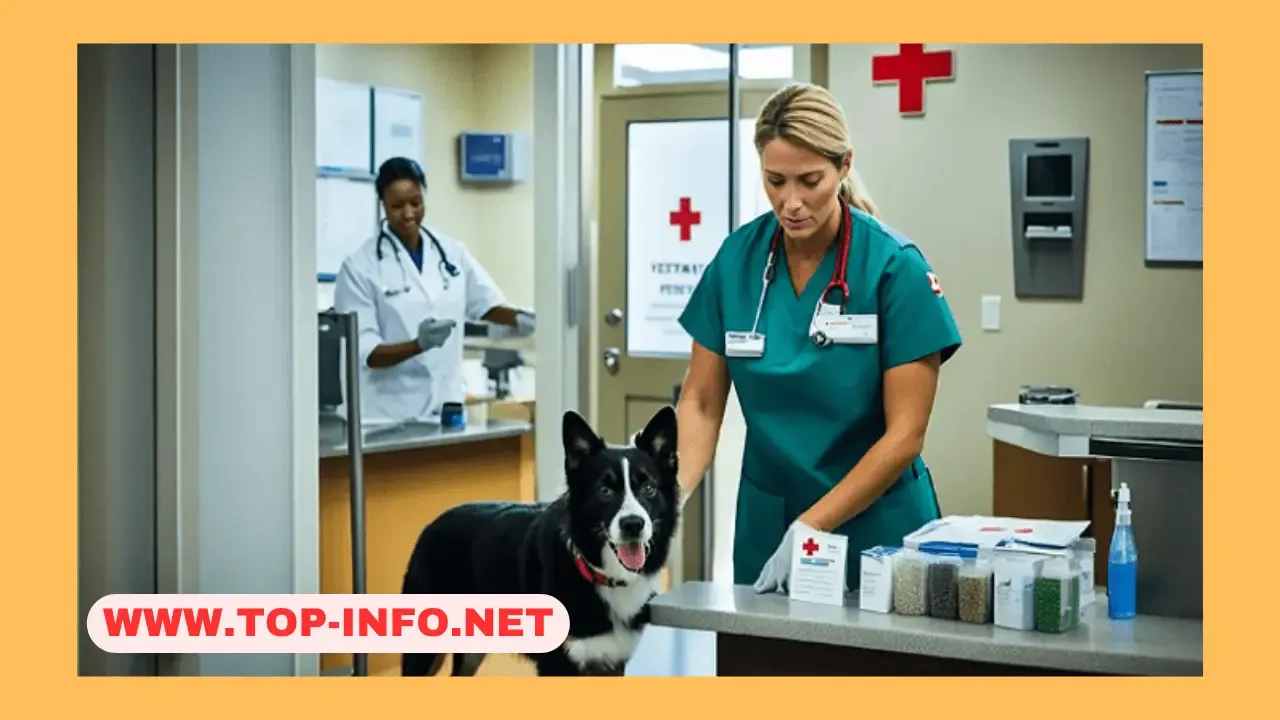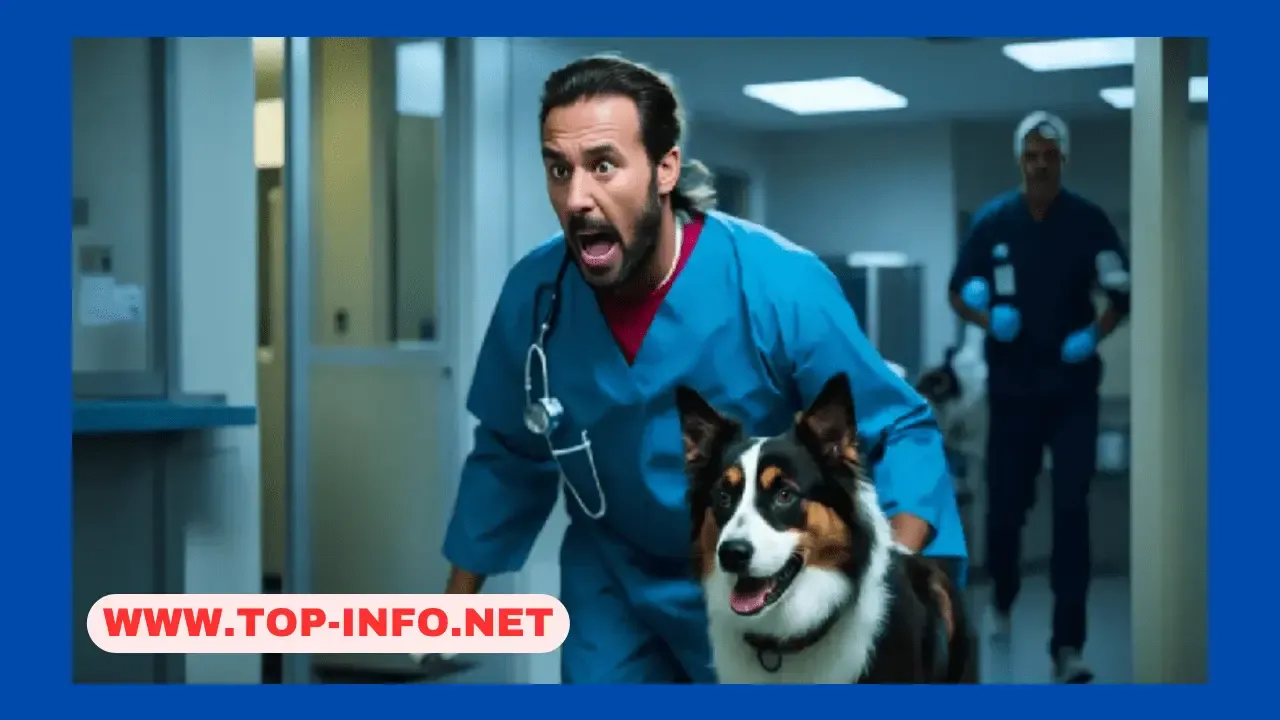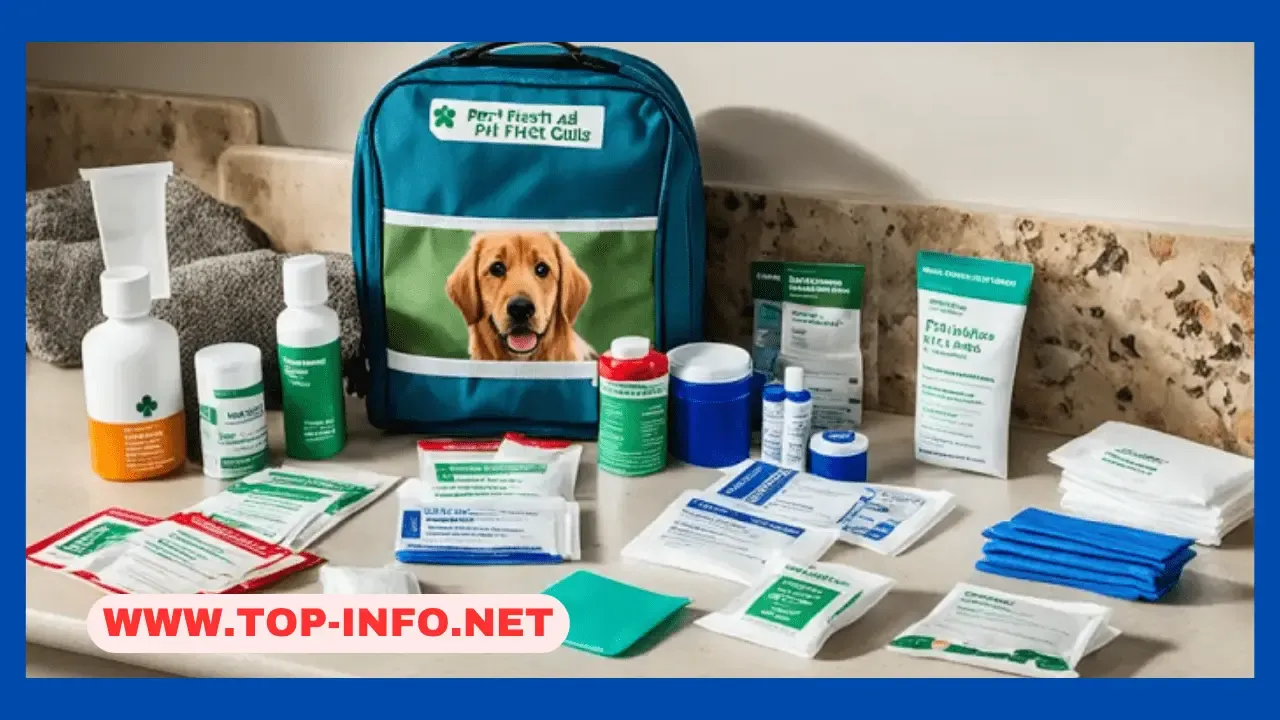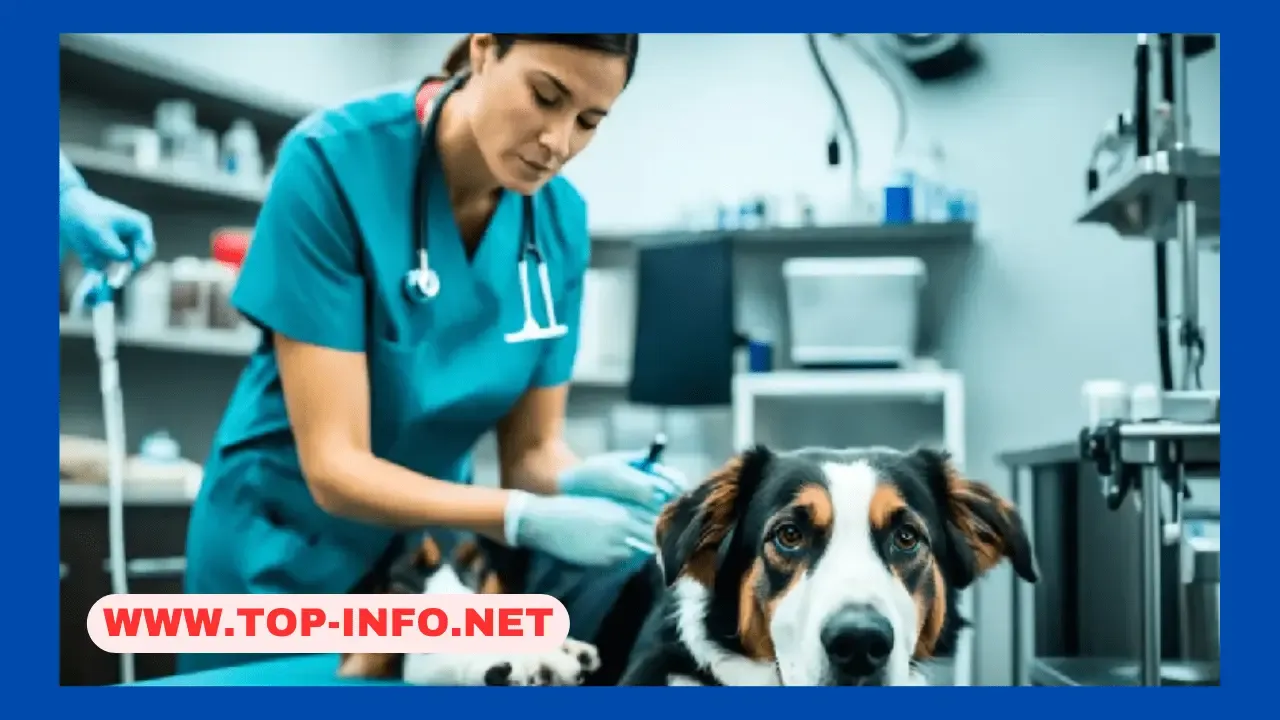If you suspect something might be amiss with your furry friend, you absolutely should know the situation when emergency veterinary care is required. These are built to take care of our pets in a more professional and precise way.
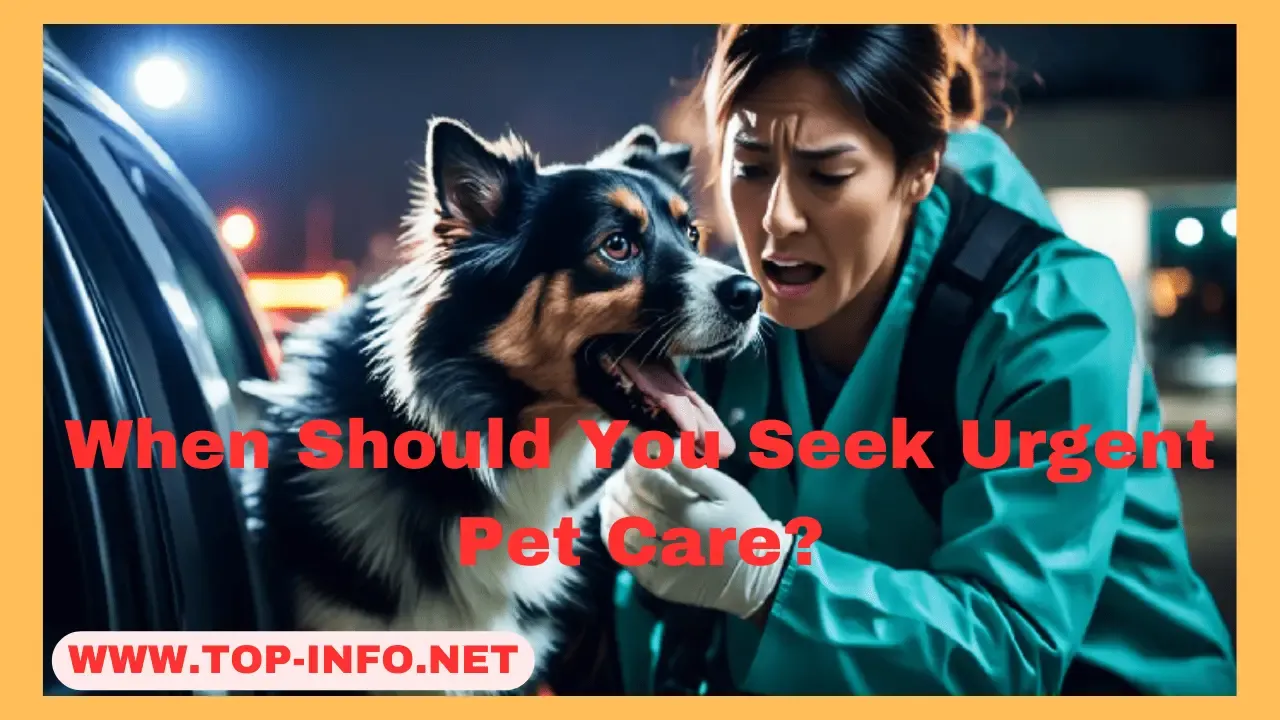 |
| When Should You Seek Urgent Pet Care? |
It deals with non-critical health issues of our furry loved ones. To get started with the many general guidelines that one has to consider in determining if a pet’s health status calls for emergency care or if the matter can be followed up in normal vet appointment sessions, let’s dive right in.
Key Takeaways:
- Ure care facilities for pets are designed to treat medical conditions that are not a threat to the life of the animal.
- A few problems like sneezing, subtle behaviour shifts, or slight appetite fluctuations are usually something that is not supposed to occur during regular vet appointments.
- Such centres can attend to all the cases that present with minor wounds, reactions, and infections.
- For cases that need immediate emergency care, attention from a specialized care clinic is a life-saving service.
- In case you have noticed some medical emergency syndrome in your pet, do not procrastinate about going to a vet on time.
Identifying Non-Life-Threatening Pet Issues
If your pet is experiencing any of the following non-severe issues, it's generally safe to wait for a regular vet appointment: If your pet is experiencing any of the following non-severe issues, it's generally safe to wait for a regular vet appointment:
- Sneezing or a runny nose: However, they are to be regarded as an issue of concern as they may as well be an indication of other allergies or respiratory infections.
- Changes in behavior: Behavioral changes that are at first subtle, like a person becoming tired or more anxious than usual should be looked at as warning signs that help you detect a mental condition before it gets worse.
- Non-severe appetite changes: Appetite can vary moment by moment for such reasons as dietary changes or the slightest intestinal discomfort.
- Itchy or irritated skin: Many times, small dermatological issues such as itchiness or dermatitis are manageable, and can be addressed during a vet visit.
- Limping: If your pet is yet walking albeit limp, it might mean there is a minor injury or a strain that can be reviewed during the appointment.
- Broken nails: Usually, except in the case of nails being torn off leading to significant bleeding issues or nails getting stuck in shoes, broken nails often do not require immediate treatment or at least attention.
- Vomiting or diarrhea without significant behavioral changes: Some dogs are just in a very good mood; they act amusing and are engaging with other dogs but the remaining effects are not visible.
If your pet’s condition is stable and these problems are not life-threatening and can’t wait on a regular vet appointment, then visiting a veterinary medium-care clinic or calling their helpline for advice is recommended.
Veterinary Urgent Care Centers: At a minimum, we will ensure that the pets get the food, water, and shelter they require.
Veterinary urgent care centers are essential in that they respond to pets in time crises with non-life-threatening issues. These centres are equipped with the necessary facilities and supply various treatments to detect and prevent diseases in your pets.
The well-trained staff at animal emergency centres have the proficiency to treat both minor and serious wounds and injuries, besides providing instant medical relief aimed at releasing the pain of your animal. They are also there to help in giving simple bites or quill removal helpers, to ensure a safe and comfortable recovery.
Urgent care centres would be the best avenue for the investigation of problems like blood in the urine or stool, diarrhea, vomiting, or behavior changes that would probably be due to digestive system disorders. Such places help to detect the underlying cause and develop treatment plans to normally restore digestive health.
Besides, they have specialized techniques devoted to handling allergic reactions and giving immediate remedies in line with your pet's needs. Veterinary professionals are recognized to render the needed medicines and monitor the well-being of the patient intensely whether mild or severe.
When pets ingest toxins or have foreign body syndrome, veterinary urgent care facilities carry out emergency assessments and take steps to reduce the chances of these pets suffering harm. They deal with malnourishment by reducing intake by doing comprehensive tests which promote hunger and proper diet.
Moreover, before infections in the eyes or ears are dealt with, veterinary clinics include the right medications and procedures to cure them instantly.
This allows the pet owners to have their pets checked and treated as quickly as possible but only for non-emergency situations that can settle any worry that they might have. They give preference to quick treatment and efficient approaches that enable pets to receive required care as and when treated.
Key Treatment Areas at Veterinary Urgent Care Centers:
- Minor wounds and injuries
- Minor bites or quill removal
- Blood in urine or stool
- Difficulty walking
- Diarrhea or vomiting with behavior changes
- Allergic reactions
- Toxin or foreign body ingestion
- Loss of appetite
- Eye or ear infections
Critical Pet Emergencies Requiring Immediate Veterinary Attention
When the situation calls for quick changes and actions to ensure the safety of your pet, this is one of the most significant things that you can do. Once the animal is in the middle of a major problem, the decision is to wait and face the circumstances or take them to the emergency clinic straight away. The purpose of these facilities is not only to give timely and proper pet care but also to keep the pets stable and thus prevent any further injury.
Numerous life-threatening scenarios necessitating emergency care comprise:
- Severe trauma, such as collision with a vehicle
- Fractured bones
- Choking or respiratory distress
- Profound bites or gaping wounds
- Envenomation from snake bites
- Loss of consciousness
- Paralysis
- Ingestion of hazardous toxins or foreign objects
- Heatstroke
- Complications during labor
- Inability to defecate or urinate
Be it in case of life-threatening conditions or primary care needs; prompt intervention from a veterinary emergency clinic is essential. The attendance of your pet in your nearest emergency unit as soon as possible increases the odds of him receiving the required medical response in the shortest possible time which sometimes is the only thing that could stabilize the condition and save his life.
Time is of the essence in critical situations, explains Dr. Emily Thompson, a veterinarian. "Hurrying your beloved pet to an emergency clinic will ensure that she gets medical attention as soon as possible and your chance of achieving a happy end greatly increases.
Identifying Indicators of Urgent Veterinary Care Requirements for Pets
When it comes to your pet's health, being able to identify signs indicating the necessity for emergency care is paramount. Taking prompt action in such instances can profoundly impact your pet's welfare. Here are some critical signs that signal your pet requires immediate veterinary attention:
- Unusual lethargy or sudden collapse
- Heightened anxiety or restlessness
- Difficulty breathing or labored respiration
- Persistent coughing or coughing up frothy liquid
- Excessive panting beyond normal levels
- Abnormal gum color, such as paleness or bluish tint
- Noticeable distension of the abdomen
- Repeated attempts to vomit without producing anything
- Paleness of the gums
- Elevated heart rate
- Vocalization due to pain or discomfort
- Presence of any wounds on the body
- Jaundice (yellowing of the skin or eyes)
- Inability to move or walk normally
- Uncontrolled bleeding
- Traumatic injuries
- Bite wounds from other animals
- Suspected poisoning or ingestion of toxins
- Persistent vomiting beyond normal levels
- Unusual vaginal discharge in female pets
- Foul or abnormal body odor
- Abnormal body temperature (too high or too low)
- Squinting or evident discomfort in the eyes
- Issues with urination or defecation
- Any other signs causing concern or deviation from normal behavior
Should you observe any of these signs in your pet, it's advisable to seek veterinary care promptly to ensure their well-being. As a pet owner, you're attuned to your furry companion's normal behavior, so trust your instincts and seek guidance from a veterinary professional if anything seems amiss.
By recognizing the indicators of urgent veterinary care needs in pets, you can take swift action and provide essential care to your cherished companion precisely when they need it most.
Significance of Prompt Medical Attention for Pets
The emphasis in a situation, where your pet is not feeling well should be placed on the fact that you have to act swiftly and should take such signs as the cue to do so. A quick response is likely to stop the problem from increasing and even keep your pet alive in the end. It is crucial to take care of your pet immediately when you notice these symptoms or some strange behavior that does not look normal.
If in doubt, the best thing to do is to contact your veterinary clinic or an emergency veterinarian to ensure that you are proceeding with the idea that would be better for your pet.
When our pets are in an emergency, time is the most crucial factor. A problem-solving approach can be taken by the suspension of the released business to promote the renewal of your beloved pet. Sometimes the diseases come suddenly, but they may also be realized by some kinds of injuries or changes in the behavior. However, the veterinarian with the right qualifications and equipment as well, will adequately assess what's wrong with the animal, and will manage the situation.
The Vital Role of Veterinary Care
In times of emergency, veterinarians are assigned the crucial guiding tasks of diagnosing, and treating and veterinarians are the one to take control of the situation. Their abilities comprise detecting any potential health deficiencies, interpreting symptoms and choosing and implementing the required intervention procedure.
The chance to interact with a veterinary expert does not only give you a chance to be informed but it also gives you access to extensive knowledge required in arriving at the correct diagnosis, treatment and care for your pet. The prompt response of medical treatment, might, however, change the odds in favor of a pet, and improve the chances for a speedy recovery and good prognosis.
To keep your pet's life in good condition, it's essential to inform yourself about the signs of a pet emergency and actively find the right vet around you. Taking preventive measures is the best and mostly health of your small pet depends on you and only you. By taking timely action you will help it to recover completely.
| Signs that Require Immediate Medical Attention | Description |
|---|---|
| Lethargy or collapse | Excessive tiredness or loss of consciousness |
| Difficulty breathing | Rapid or labored breathing, choking, or gasping |
| Abnormal gum color | Pale, yellow, blue, or purple gums |
| Continuous vomiting or diarrhea | Persistent and frequent episodes of vomiting or diarrhea |
| Severe bleeding or trauma | Excessive blood loss or serious injuries |
Remember, every moment counts in a pet emergency. Your swift response, coupled with the expertise of a veterinary professional, can substantially influence their overall prognosis and well-being.
Owning a Pet First Aid Kit for Home Emergencies
Being prepared for pet emergencies entails having a pet first aid kit readily available at home. This kit is equipped with essential items to manage minor injuries or administer immediate care before accessing professional veterinary assistance. By maintaining a pet first aid kit, you ensure that your beloved companion receives prompt aid during unforeseen emergencies.
What to Include in a Pet First Aid Kit?
- A well-stocked pet first aid kit should comprise the following essentials:
- Bandages – Including sterile gauze pads, adhesive tape, and self-adhering bandages.
- Antiseptic solution – To cleanse wounds and thwart infection.
- Tweezers – For extracting splinters, ticks, or foreign objects.
- Scissors – Safely used to cut bandages or trim hair surrounding wounds.
- Digital thermometer – To monitor your pet's body temperature.
- Disposable gloves – Offering protection and preventing infection transmission.
- Hydrogen peroxide – For inducing vomiting (under veterinary guidance only).
- Medications – Any prescribed medications recommended by your veterinarian.
- Emergency contact information – Your veterinarian's contact details and the nearest emergency veterinary clinic.
- Leash and muzzle – Essential for safely restraining your pet during emergencies.
Having these crucial supplies readily accessible can significantly facilitate immediate care for your pet during an emergency. It's important to routinely inspect and replace expired items in your pet first aid kit to uphold its efficacy.
Advantages of Owning a Pet First Aid Kit
A pet first aid kit confers several benefits, including:
- Swift response: With a well-equipped first aid kit, you can promptly administer initial care to your pet, potentially alleviating discomfort and averting complications.
- Peace of mind: The assurance of having necessary supplies at hand can assuage anxiety during pet emergencies.
- Timely intervention: Prompt care can stabilize your pet's condition before veterinary assistance, heightening the likelihood of a favorable recovery.
- Addressing minor injuries: A pet first aid kit empowers you to manage minor wounds like cuts, scrapes, or sprains without an immediate vet visit.
Remember, while a pet first aid kit serves as a valuable resource, it should complement professional veterinary care and never replace it. In case of emergencies or uncertainties about your pet's condition, always seek guidance from a qualified veterinarian.
Getting Guidance from a Veterinarian or Emergency Veterinary Services
When uncertainty arises regarding your pet's condition, it's wise to seek counsel from a veterinarian or emergency veterinary services. These experts possess the knowledge and skills to evaluate your pet's situation, aiding in determining whether immediate veterinary attention is necessary.
A veterinarian can offer assistance via phone, enabling you to detail your pet's symptoms and receive initial advice on the most suitable course of action. If deemed necessary, they may recommend a clinic or emergency facility visit, or provide instructions for steps to take en route to ensure your pet's welfare.
Seeking professional guidance is paramount for your pet's health. Veterinarians are adept at symptom assessment, identifying potential emergencies, and advising on appropriate measures to take before arriving at the clinic or emergency facility.
By consulting with a veterinarian or emergency veterinary services, you attain peace of mind, ensuring your pet receives timely and appropriate care. These professionals are committed to preserving and enhancing pet health, aiding pet owners in making informed decisions during critical situations.
Remember, if you harbor any uncertainties or concerns regarding your pet's well-being, don't hesitate to reach out to a veterinarian or emergency veterinary services for expert advice and support.
The Significance of Triage in Emergency Pet Care
Triage holds a pivotal role in delivering efficient emergency pet care. Veterinary establishments, along with emergency facilities, employ triage protocols to prioritize patients based on the severity of their conditions. Through swift assessment and categorization, veterinary experts ensure that pets facing life-threatening issues receive immediate attention and stabilization.
Veterinary triage entails a methodical evaluation of each patient to gauge the level of care required. This systematic approach aids in prioritizing treatments, managing resources effectively, and optimizing outcomes for pets in urgent situations. By classifying cases according to their medical urgency, triage facilitates streamlined decision-making, ensuring that critical cases are promptly addressed.
During triage assessment, a veterinarian or trained staff member conducts a thorough evaluation of the pet's vital signs, clinical symptoms, and overall health status. This assessment guides the determination of the appropriate intervention and urgency level for immediate treatment.
Effective triage in emergency pet care ensures timely and suitable medical attention, fostering the best possible outcomes for our beloved companions.
Understanding the triage process enables pet owners to grasp the waiting dynamics at emergency facilities. Since patients are prioritized based on the severity of their conditions, it's essential to acknowledge that more critical cases receive immediate attention, while less severe cases may experience a longer wait. By comprehending the triage system, pet owners can maintain realistic expectations and ensure that pets with the most pressing needs receive priority.
Emergency pet care facilities are well-equipped to handle a diverse array of urgent scenarios. Whether it involves trauma, toxin ingestion, respiratory distress, or other life-threatening conditions, these facilities boast the resources and expertise to deliver immediate care and stabilization.
Remember, in emergencies, seeking professional veterinary care is always recommended. If you suspect your pet requires urgent attention, reach out to your local veterinarian or emergency veterinary services for guidance on the appropriate steps to safeguard your pet's health and well-being.
Tips for Pet Owners During Emergency Veterinary Visits
When heading to an emergency vet clinic, it's beneficial to anticipate potential waiting times, as pets are prioritized based on the severity of their condition. Here are some tips to optimize your experience during an emergency vet visit:
- Bring Entertainment: To help pass the time during potential waiting periods, consider bringing along a book or a laptop to keep yourself occupied. This can make the wait more manageable for both you and your furry companion.
- Follow Instructions: Pay close attention to the instructions provided by the veterinary staff. They are skilled professionals who will guide you through the necessary steps to ensure optimal care for your pet.
- Exercise Patience: Recognize that emergencies can occur unexpectedly, and the staff may need to attend to critical cases before addressing yours. Maintaining patience and understanding enables the veterinary team to deliver the required care to all patients.
By preparing in advance, adhering to instructions, and demonstrating patience, you can contribute to ensuring the best possible care for your pet during emergency veterinary visits.
When it comes to veterinary care, Quincy Veterinary Centers in Plymouth offer convenient and high-quality urgent care for pets, catering to both emergent and non-emergent needs seven days a week. With just a click to "book online," pet owners can easily check the availability of walk-ins and bring their pets for non-emergent illnesses and injuries, providing peace of mind even at the discretion of staff.
The check-in process at Quincy Veterinary Centers is friendly and welcoming, ensuring a thorough and compassionate experience in a comfortable setting. Conveniently located with paperless practices, Quincy Veterinary Centers in Plymouth offer pet owners the convenience of multiple locations, sparing them from travelling long distances for veterinary care.
The after-hours service ensures that sick visits are accommodated, and the center goes above and beyond by offering various suggestions without applying any pressure, aligning perfectly with the commitment to providing compassionate care for pets' urgent needs.
Whether it's a review of the pet's condition or the provision of diagnostics, Quincy Veterinary Centers in Plymouth are dedicated to delivering the best veterinary care for the furry members of the family.
We're committed to ensuring that your pet receives the care they require, and with walk-ins welcome, you can rely on us for convenient and dependable veterinary services.
Conclusion
Understanding when to seek pet urgent care or emergency veterinary services is paramount for maintaining the health and well-being of your beloved companion. Recognizing the signs that warrant immediate attention and having a trusted veterinarian to consult with empower pet owners to make informed decisions during critical situations. Swift action and proper care play pivotal roles in achieving favorable outcomes for pets in urgent circumstances.
When confronted with a potential emergency, it's imperative to evaluate the seriousness of your pet's condition and respond accordingly. Non-life-threatening issues may be suitable for an appointment with your primary care veterinarian or a visit to a veterinary urgent care center. Conversely, life-threatening situations demand immediate intervention at an emergency care clinic.
Identifying the indicators of emergency care needs in pets is fundamental. Symptoms such as lethargy, respiratory distress, bleeding, abnormal behavior, or trauma should never be disregarded. Seeking guidance from your veterinarian or an emergency veterinary service can offer insights into the best course of action for your pet's health.
In summary, possessing comprehensive knowledge about pet urgent care, emergency care, and veterinary services is indispensable for every pet owner. Taking proactive measures to ensure timely and appropriate care for your pet can significantly enhance their well-being and facilitate a speedy recovery.
Posted by: Top Info
Read More: Ultimate Guide to Understanding Gym Membership Coverage Insurance

